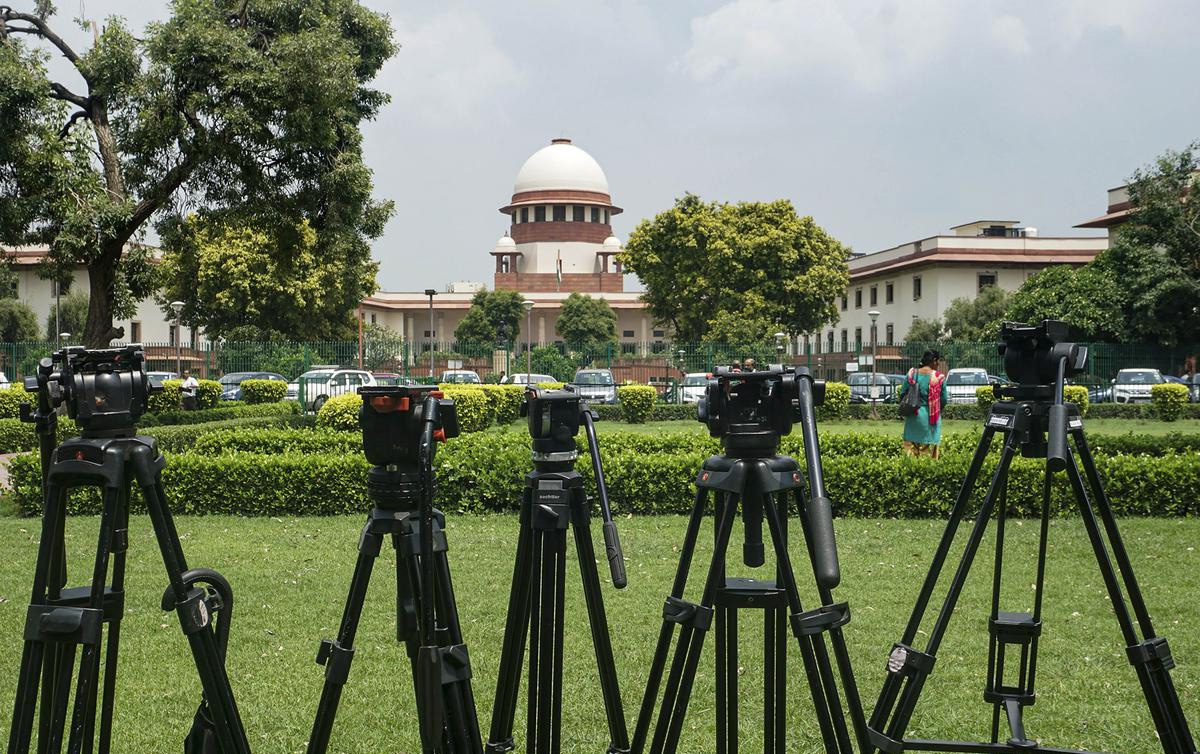Excelsior Correspondent
NEW DELHI, Oct 15: The Supreme Court has held that the provisions of the Right to Fair Compensation and Transparency in Land Acquisition, Rehabilitation and Resettlement Act, 2013 (the Act, 2013) shall not be applicable to the acquisition under the Jammu & Kashmir State Land Acquisition Act, 1990.
In view of the binding decision of the Court in Bangalore Development Authority & Anr. vs. State of Karnataka & Ors., the Bench of Justice MR Shah and Justice Krishna Murari observed thus “…we are of the firm view that the provisions of the Act, 2013 shall not be applicable with respect to the acquisition under the J & K Act, 1990.”
The Court was dealing with an appeal challenging the Order passed by the High Court of Jammu & Kashmir and Ladakh whereby the Court directed the appellants to determine and pay to the original land owners the compensation under the Act, 2013 on the ground that no award under the State Land Acquisition Act, 1990 has been published and/or declared.
Solicitor General, Tushar Mehta, appeared on behalf of the Appellants and Advocate Sunil Fernandes appeared on behalf of the Respondents.
The Court noted that while passing the impugned common judgment and order, the High Court relied upon Section 24(1)(a) of the Act, 2013.
Section 24(1)(a) of the Act, 2013, provides that notwithstanding anything contained in Act, 2013, in any case of land acquisition proceedings initiated under the Land Acquisition Act, 1894, where no award under Section 11 of the said Land Acquisition Act has been made, then, all provisions of Act, 2013 relating to the determination of the compensation shall apply.
The Court observed that in the present case, the lands in question were acquired under the provisions of the State Land Acquisition Act, 1990. Therefore, the acquisition of the lands in question is not under the Land Acquisition Act, 1894.
The Court further noted that “It is the case on behalf of the original writ petitioners that as the provisions of the State Act of 1990 are pari materia to the Land Acquisition Act, 1894 and therefore, Section 24(1)(a) of the Act, 2013 shall be applicable. The aforesaid cannot be accepted.”
Thus, the Court held that the provisions of the Act, 2013 shall not be applicable with respect to the acquisition under the J & K Act, 1990.
The Court observed that even otherwise in some of the writ petitions there was an order of status quo may be with respect to the possession. The Court noted that there was an impediment on the part of the authority in declaring the award.
The Court held that the original writ petitioners cannot be permitted to take benefit of the order of status quo obtained by some of the original writ petitioners and thereafter contend that as the award has not been declared they shall be entitled to the enhanced amount of compensation under the provisions of the Act, 2013.
“In view of the above and for the reasons stated above and our specific finding that with respect to the lands acquired under the provisions of the J & K Act, 1990 Section 24(1)(a) of the Act, 2013 shall not be applicable and even otherwise as observed hereinabove on merits also as the award could not be declared due to the pendency of the writ petitions before the High Court and the order of status quo, the High Court has committed a serious error in directing the appellants to pay the amount of compensation under the Act, 2013.”, the Court held.
Thus the Court set aside the impugned common judgment and order passed by the High Court directing appellants to pay to the original writ petitioners-original land owners the compensation as per the Act, 2013.
The Court also observed, “As the High Court has not decided the writ petitions on merits on other grounds with respect to quashing of the land acquisition proceedings, all the writ petitions are remitted back to the High Court to decide and dispose of the said writ petitions afresh in accordance with law and on its own merits so far as other grounds with respect to the quashing of the land acquisition proceedings, which shall be dealt with by the High Court in accordance with law and on its own merits.”
Trending Now
E-Paper


